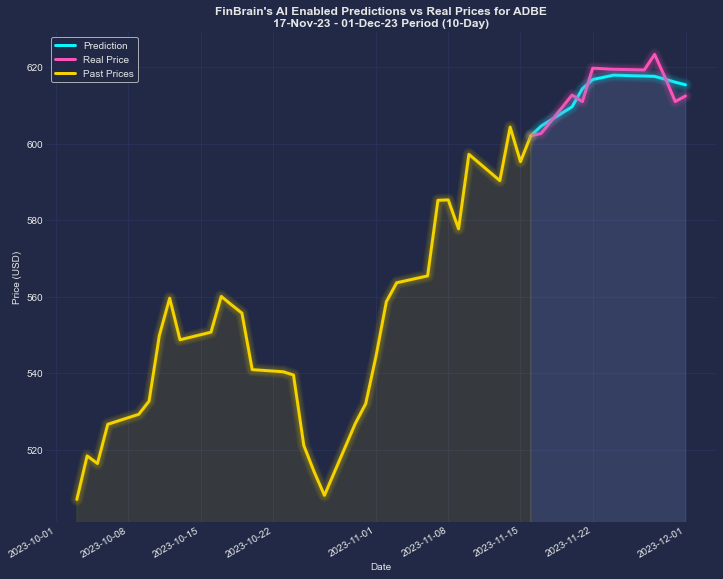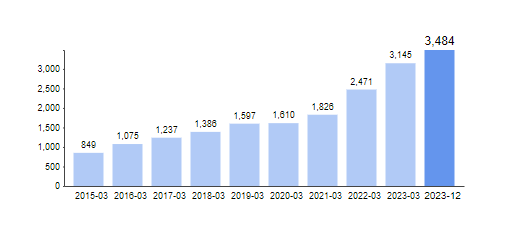Top 10 Tips For Diversifying Data Sources For Ai Stock Trading From Penny To copyright
Diversifying sources of data is vital for developing AI-based stock trading strategies, which are applicable to penny stocks and copyright markets. Here are the 10 best tips for integrating data sources and diversifying them in AI trading.
1. Make use of multiple feeds from the financial markets.
TIP: Collect data from multiple sources, such as the stock market, copyright exchanges and OTC platforms.
Penny Stocks: Nasdaq, OTC Markets or Pink Sheets.
copyright: copyright, copyright, copyright, etc.
What’s the problem? Relying only on feeds can lead to in a biased or incomplete.
2. Social Media Sentiment data:
Tip: You can analyze sentiments from Twitter, Reddit, StockTwits, and other platforms.
To locate penny stocks, check specific forums such as StockTwits or the r/pennystocks forum.
copyright Attention to Twitter hashtags as well as Telegram group discussions and sentiment tools such as LunarCrush.
The reason: Social Media may cause fear or hype especially in the case of speculative stock.
3. Leverage Economic and Macroeconomic Data
Tip: Include data such as interest rates, GDP growth, employment statistics and inflation statistics.
Why: Broader economic trends affect market behavior, and provide an explanation for price movements.
4. Utilize on-Chain data to create copyright
Tip: Collect blockchain data, such as:
The activity of the wallet
Transaction volumes.
Exchange flows and outflows.
Why? On-chain metrics can give unique insight into the copyright market’s activity.
5. Incorporate other data sources
Tip Integrate data types that are not conventional (such as:
Weather patterns (for agricultural sectors).
Satellite imagery is used for logistical or energy purposes.
Web traffic analytics (for consumer sentiment).
Why: Alternative data provides new insights into alpha generation.
6. Monitor News Feeds for Event Data
Tip: Scans using NLP tools (NLP).
News headlines
Press releases
Announcements of a regulatory nature
News could be a risky factor for cryptos and penny stocks.
7. Monitor Technical Indicators across Markets
Tips: Diversify your technical data inputs by including several indicators:
Moving Averages
RSI refers to Relative Strength Index.
MACD (Moving Average Convergence Divergence).
Why: A mix of indicators improves the accuracy of predictions and avoids over-reliance on a single signal.
8. Include real-time and historic data
Tip: Blend the historical data to backtest with real-time data to allow live trading.
Why: Historical data validates strategies, while real-time data ensures they adapt to current market conditions.
9. Monitor Data for Regulatory Data
Keep yourself informed about new tax laws as well as tax regulations and policy changes.
Keep an eye on SEC filings on penny stocks.
To track government regulations on copyright, including adoptions and bans.
What is the reason? Regulations can have immediate and profound impacts on the market’s dynamic.
10. AI Cleans and Normalizes Data
Use AI tools to process raw data
Remove duplicates.
Fill in any gaps that could be there.
Standardize formats across different sources.
Why is this? Clean and normalized data will allow your AI model to function with a high level of accuracy without causing distortions.
Make use of cloud-based data Integration Tool
Utilize cloud-based platforms, such as AWS Data Exchange Snowflake and Google BigQuery, to aggregate data in a way that is efficient.
Cloud solutions can handle large-scale data from multiple sources, making it easier to analyze and integrate diverse datasets.
If you diversify the data sources you utilize by diversifying your data sources, your AI trading methods for copyright, penny shares and more will be more reliable and flexible. Read the recommended trading ai info for website recommendations including best ai stock trading bot free, ai penny stocks, ai stock market, copyright predictions, incite, ai stock price prediction, ai day trading, free ai tool for stock market india, ai trading app, incite ai and more.

Top 10 Strategies To Use Ai Stock-Pickers To Increase The Quality Of Data
AI-driven investments, predictions and stock picking depend on the quality of the data. AI models can make more accurate and reliable predictions when the data is of high-quality. Here are 10 top techniques for AI stock-pickers to ensure the highest data quality:
1. Prioritize clean, well-structured data
Tip. Make sure you have clean data, that is, without errors, and in a format that’s consistent. This includes eliminating redundant entries, handling of data that is not in order as well as maintaining integrity.
What’s the reason? Clean and organized data enables AI models to process data more efficiently, resulting in better predictions and fewer mistakes in decision-making.
2. Real-Time Information, Timeliness and Availability
Tip: Use up-to-date market data that is real-time for forecasts, such as volume of trading, stock prices, earnings reports, and news sentiment.
Why is it important? It is crucial to allow AI models to be able to accurately reflect current market conditions. This is especially important in markets that are volatile, such as penny stock and copyright.
3. Source Data from Reliable Providers
TIP: Use reliable data providers to obtain technical and fundamental information such as economic reports, financial statements, or price feeds.
Why? Utilizing reliable sources of data reduces the risk of inconsistencies or errors within data that could influence AI model performance or lead to inaccurate prediction.
4. Integrate Multiple Data Sources
Tips: Combine diverse sources of data, such as financial statements news sentiments, financial statements, social media and macroeconomic indicators.
Why? A multisource approach provides an overall market view that allows AIs to make more informed decisions by taking into account multiple aspects of stock behavior.
5. Focus on Historical Data for Backtesting
Tip: Gather high-quality historical information to test back-testing AI models to evaluate their performance in various market conditions.
The reason is that historical data allow to refine AI models. You can simulate trading strategies and analyze potential returns to ensure that AI predictions are robust.
6. Validate Data Quality Continuously
Tip: Regularly audit data quality and look for any inconsistencies. Update information that is outdated and ensure the data is current.
Why: Consistent data validation lowers the risk of making inaccurate predictions due to outdated or inaccurate data.
7. Ensure Proper Data Granularity
Tip – Choose the level of granularity you think is best to your strategy. For example, you can, use regular data or minute-by-minute information when you’re investing for the long term.
Why: The correct degree of granularity is vital to your model’s objectives. Short-term trading strategies, for example, benefit from high-frequency data and long-term investments require an extensive and less frequent amount of information.
8. Integrate alternative data sources
Make use of alternative sources of data like satellite images or sentiment on social media. You can also scrape the internet to uncover the latest trends in the market.
Why: Alternative data provides distinct insights into market behavior. This gives your AI system an advantage over your competitors because it can identify trends traditional data sources may not be able to detect.
9. Use Quality-Control Techniques for Data Preprocessing
Tip. Use preprocessing techniques such as feature scaling, normalization of data, or outlier detection, to improve the accuracy of your data before you input it into AI algorithms.
Why is it important to preprocess data? It ensures that the AI model understands the data in a precise manner. This reduces errors in predictions, and enhances the overall performance of the AI model.
10. Track Data Drift, and then adapt Models
TIP: Stay on alert for data drift – when the characteristics of data change over time. You can modify AI models to reflect this.
The reason: Data drift can negatively affect the accuracy of an algorithm. By adapting your AI model to change in patterns in data and detecting the patterns, you can increase its effectiveness over time.
Bonus: Create a feedback loop to improve the quality of data
Tip: Create feedback loops in which AI models learn continuously from new data, performance results and methods for data collection.
Feedback loops help you to continuously enhance the accuracy of your data as well as ensure that AI models reflect current market developments and conditions.
It is essential to focus on data quality to maximize the effectiveness of AI stock pickers. AI models will be more precise in their predictions when they have access to high-quality data that is clean and current. This helps them make better investment decision. By following these guidelines, you can make sure that you’ve got the most reliable data base to enable your AI system to predict and make investments in stocks. See the top rated trading chart ai for blog examples including trading with ai, best stock analysis app, best ai trading app, ai financial advisor, artificial intelligence stocks, free ai tool for stock market india, ai trading, copyright ai, incite, ai stock trading app and more.

Leave a Reply